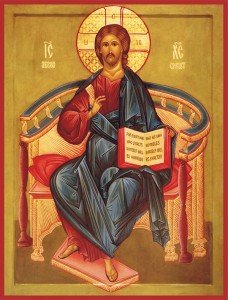 It is my hope that, by providing various forms of information about the New Testament (NT), my readers will gain a deeper understanding and love of it. The NT must be one of the essential books in every Christian’s library. It is the book that truly helps us to become true followers of Jesus Christ. Because of this, I have decided that I will, during the next several weeks, begin sharing information about each of the four Gospels. I will begin with Mark’s gospel since it is supposedly the oldest of the four Gospels we have in the Canon approved by the Church.
It is my hope that, by providing various forms of information about the New Testament (NT), my readers will gain a deeper understanding and love of it. The NT must be one of the essential books in every Christian’s library. It is the book that truly helps us to become true followers of Jesus Christ. Because of this, I have decided that I will, during the next several weeks, begin sharing information about each of the four Gospels. I will begin with Mark’s gospel since it is supposedly the oldest of the four Gospels we have in the Canon approved by the Church.
The actual author of the Gospel of mark, like those of all the Gospels, is unknown to us. The manuscripts that survived date from the fourth century; the names of the evangelists were added sometime in the second century. There is reason to believe that the early church was less interested in knowing the actual authorship than in connecting the Gospel narratives with actual apostolic witnesses. They found the names “Matthew” and “John” within their respective Gospels, and the name “Luke” as one mentioned by Paul as his traveling companion. For Mark they relied on a fragment written by a second-century bishop named Papias, who spoke of Mark as the “interpreter” of Peter. This suggestion dovetailed with the observation in Acts that Peter had visited the home of someone in Jerusalem named “John who is called Mark” (Acts 12:12). Some also found support in the reference in the first letter of Peter to “Mark, my son” (1 Peter 5:13). Not all scholars accept these inferences, yet to link with Peter is supported by internal evidence.
Since we do not know for certain who wrote the Gospel of Mark, we also cannot be certain of its intended audience. The link with Peter has led some scholars to speculate that it was addressed, like Peter’s first letter, to the church in Rome. But there are many other bases for speculating both about Mark’s Gospel and Peter’s letter. Among them is the fact that Peter is known in Acts as the head of the Jerusalem Church; an argument could be made that Mark was a member of that early Jewish-Christian community. Language offers some internal clues as to both the author and his intended audience. Mark’s manuscript, like the other Gospels, has come down to us as a GREEK text. Why, one might wonder, would the evangelist have written in Greek instead of in Hebrew or Aramaic, the Jewish idiom common in Galilee?
